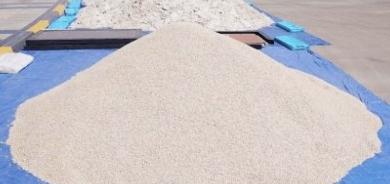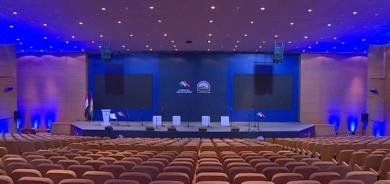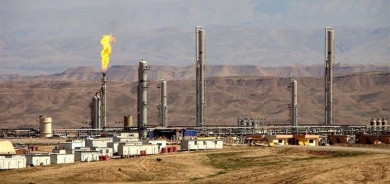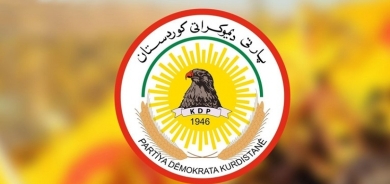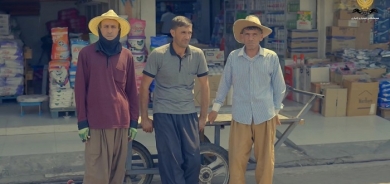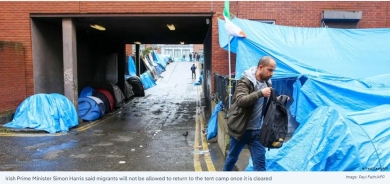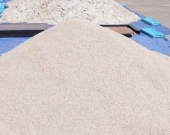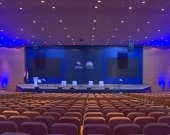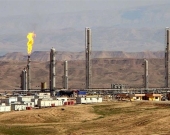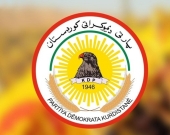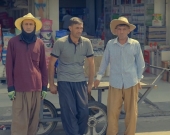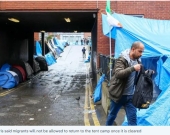Despite Hurdles, Foreign Investors Flock to Kurdistan
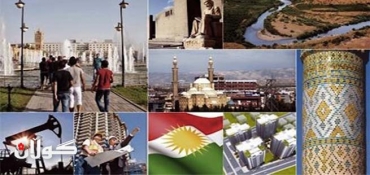
ERBIL, Kurdistan Region ? ?The planning for Sulaimani is ready, including the bus stops and the timetable for the first line,? says René Fijen, director of a Dutch firm that is working on a public transport project in Iraqi Kurdistan.
In a joint venture with the Kurdish authorities, he wants to bring buses, knowhow and trainers to set up at least one bus line in both of the two largest Kurdish cities, Erbil and Sulaimani. While the company, Fijen BV, is responsible for building the system, the Kurdistan government is in charge of infrastructure, such as creating the bus lanes and stops.
?I want to ease the traffic on the roads in Kurdistan,? says Fijen, who is working to bring public transport to a place where most people without cars get around either by taxis or privately-operated minibuses that run a limited number of routes in the cities. Trains, subways, buses and trams do not yet exist. Fijen?s eventual target is to introduce a metro on a magnetic system in the Kurdish cities.
Not too many fishermen are fishing in this pond yet.
Fijen is one of many international businessmen working in Iraqi Kurdistan. Last year, some $5 billion were invested by foreign companies, with Turkey, Iran and Lebanon among the top investors. Of all foreign companies involved, some 60 percent are Turkish.
Fijen says that one of his reasons for choosing to do business in Kurdistan is because of limited foreign competition. ?Not too many fishermen are fishing in this pond yet.? he explains.
Currently, most investment is in construction. But the Kurdistan Regional Government (KRG) also wants investment in other sectors, such as agriculture, industry and tourism. For this reason, it intends to further liberalize rules and regulations for investors.
Yet, it is not always the written rules that are important for foreign companies, but also unwritten ones that have to do with cultural differences. For instance, it took Fijen a while to get the all important wasta -- or right contacts ? without which it is nearly impossible to conduct business in Kurdistan.
?Without someone who is well connected, and preferably even knows the right person in the right clan, you do not get anywhere,? Fijen learned from experience.
?It took us three years to get a foot on the ground. If you get to know 50 people, only five are good to work with,? says André Lageweg, director of international projects for the Dutch Van den Berg Group, which is working with the powerful Ster Group in Erbil to build the Dutch Delta City, a complex of five luxury apartment towers.
Because foreign businesses are getting snarled in the bureaucratic red tape, the Kurdish department of foreign relations recently set up a special commission to look into their many complaints.
Many of the problems are because Kurdistan is in transition from a socialist to a democratic system, with new rules being put in place slowly.
Problems also arise from regulations on food imports, because the KRG has its own rules on expiration dates and health issues, and tests goods even when they carry valid health certificates from the exporting countries.
Many of the problems are because Kurdistan is in transition from a socialist to a democratic system, with new rules being put in place slowly.
There is another side to this, says Lageweg. For a construction firm like his, the lack of rules is also telling. In the West, regulations dictate how high one can build, or how wide. ?In Kurdistan, you first show your work, and then you get the okay. Here we have more freedom, but also less sureties. In the West you work within the limits, here you set them,? he says.
Another problem foreign businesses face is that Kurdistan operates largely on a cash economy. When the cash flow is finished, projects grind to a halt. Only a few local banks are able to transfer money to and from abroad, with some banks in the West still considering Iraq as a country under sanctions. ?I have made flights with loads of cash in my luggage? for operating expenses, says Fijen.
Many companies bring in foreign labor because they cannot find the right quality and knowledge in Kurdish workers, and complain about the lack of work ethics. This makes projects more expensive. Both Fijen and Van den Berg employ local workers. ?If we bring in Turkish workers, nothing is going to change,? says Lageweg. ?We train and follow-up, and we have our own people to monitor quality.?
A main problem Van den Berg had to tackle was the lack of planning in Kurdistan. His company is specialized in planning, engineering and architecture. ?Planning is foreign here,? he says. ?You start, and see if things fit. It is accepted that it might not; budgets have been reserved in case this happens.?
Flexibility is important, Lageweg says. ?We have listened to our local partners and adapted to the local preference for glass and ?blingbling? styles,? he says. ?Our team has been here to see how the Kurds build and live. As a consequence, for instance, we cut out electric cooking and put the traditional gas bottles back in the design for kitchens.?
Many companies bring in foreign labor because they cannot find the right quality and knowledge in Kurdish workers, and complain about the lack of work ethics.
Despite all the other issues, perhaps the most important factor keeping potential investors out of Kurdistan is their perceived notion of safety ? wrongfully seeing Kurdistan as dangerous as any other part of Iraq.
?It is a shame that Iraq and Kurdistan are addressed as one and the same,? says Lageweg. ?The chances of being robbed in Mallorca (in Spain) are many times greater than Kurdistan.?
?I have been in Kirkuk -- which is seen as extremely dangerous -- with no problem at all,? says Fijen. ?Yet, in Holland I broke my foot when a car drove over it in a parking lot,? he laughs.
Neither of the two Dutchmen uses bodyguards or takes special safety precautions in Kurdistan.
?What we need is more clarity about the safety situation,? Lageweg says, explaining that his country had gone to the pains of helping publish a tourist guide for Kurdistan.
He sees it as the Kurdish government?s role to provide clarity about security, and promote the region. Western governments can play a role, he adds. ?In Germany, both the government and the market is promoting Iraqi Kurdistan. That is why German companies are in the forefront of doing business here.
Rudaw

